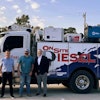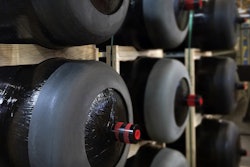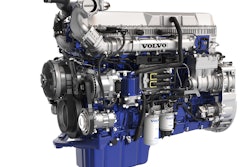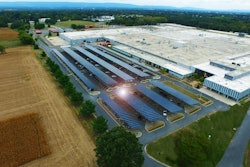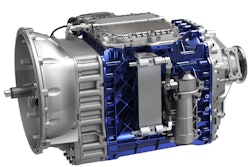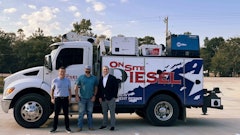Omnitek Engineering Corp. has reported results for its fourth quarter and year ended December 31, 2015 - highlighted by year-over-year revenue growth, expanding global demand for the company’s diesel-to-natural gas engine conversion technology and a year-end backlog.
Revenues for the fourth quarter ended December 31, 2015 were $313,581 compared with $413,581 a year earlier, primarily due to the timing of orders. For the same period, the company reported a net loss of $329,696, or $0.02 per share, compared with $409,156, or $0.02 per share, a year ago.
Gross margin for the quarter was $47,148 compared with $200,811 a year earlier, primarily due to the impact of a one-time, non-cash reclassification of certain items from SG&A to Cost of Goods Sold in an aggregate amount of approximately $56,000.
Revenues for the full year increased 20.7% to $1.8 million from $1.5 million in 2014, primarily due to increased diesel-to-natural gas engine conversion kit sales and filter sales to an OEM customer. The company reported a decreased net loss for the full year of $1.0 million, or $0.05 per share, compared with a net loss of $1.8 million, or $0.09 per share, a year earlier – primarily reflecting a reduction in general and administrative expenses and research and development expenditures.
Gross margin for the full year was $761,144 compared with $633,460 in 2014. Gross margin as a percentage of sales was 42% compared with 43% in the same period a year ago.
Results for the 12 months ended December 31, 2015 reflect non-cash expenses, including the value of options and warrants granted in the amount of $225,097 and depreciation and amortization of $30,628. For the 12 months ended December 31, 2014, non-cash expenses and income included the value of options and warrants granted for $335,731 and depreciation and amortization of $49,979.
“During the past year, we have seen a dramatic shift from domestic to international demand for engine conversions, primarily due to the precipitous drop in oil prices, though we still expect the domestic market will regain momentum later in the year. At this point, air pollution regulations and the price disparity between diesel and natural gas, mostly as a result of higher taxes on diesel fuel, is generating significant business opportunities for Omnitek in foreign markets, particularly in Mexico, Europe and Asia -- contributing to an order backlog at December 31, 2015 of approximately $200,000, with expectations for a record year driven by the demand for engine conversion kits and/or converted engines in export markets,” says Werner Funk, President and Chief Executive Officer of Omnitek Engineering Corp.
Funk adds that the recently signed 200-nation “Paris Agreement on Climate Change” is expected to further accelerate demand for Omnitek’s technology and generate additional interest for natural gas in both foreign and domestic markets -- especially since the fine-particles (PM2.5) and black carbon emissions from diesel engines and potent greenhouse gas (GHG) emissions are abated when using natural gas.
Funk indicated the company’s evaluation program for a large domestic fleet customer will be completed in the second quarter, with expectations for an expanded conversion program for this particular customer and additional opportunities from other fleets committed to reducing their global carbon footprint. As previously announced, the engine being developed is the Navistar VT365, as used in Class 5 and 6 delivery trucks and school buses.
Funk comments further that four Class 8 trucks utilizing Omnitek’s EPA-certified Detroit Diesel Series 60 and Caterpillar C15 natural gas engines are currently being used for heavy-haul freight transportation and port operations in the Seattle area. The fuel-use and maintenance data from the operation of these four vehicles is being collected for a report to demonstrate the economic benefits of diesel-to-natural gas engine conversions of used trucks compared with purchasing new natural gas trucks.
At December 31, 2015, current liabilities totaled $572,310 and current assets totaled $2.3 million, resulting in positive working capital of approximately $1.7 million and a current ratio of 4.0 to 1.



